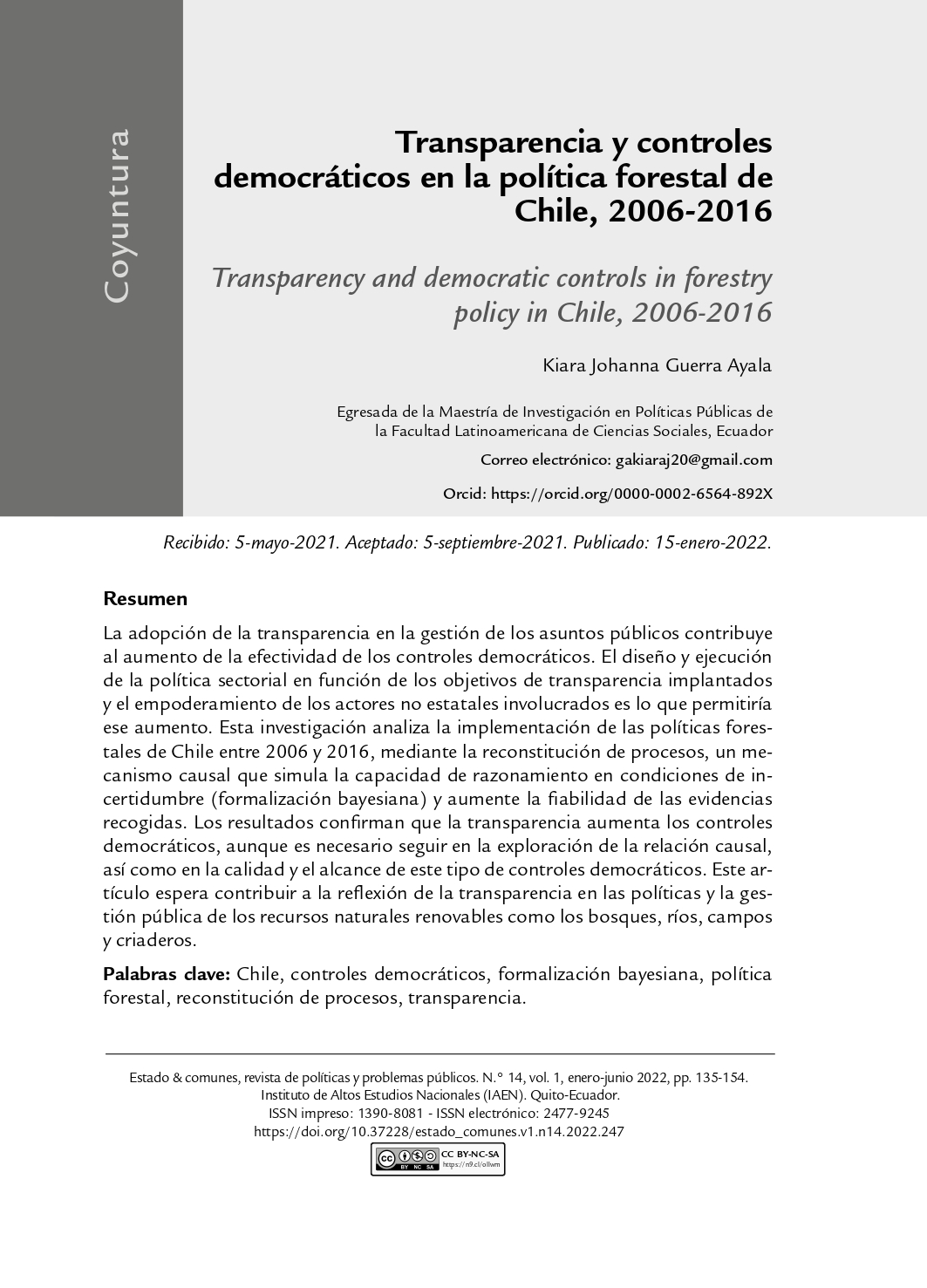Transparency and democratic controls in forestry policy in Chile, 2006-2016
Main Article Content
Abstract
The adoption of transparency in the management of public affairs contributes to increasing the effectiveness of democratic controls. The design and execution of policy-based transparency objectives and the empowerment of the non-state actors would allow this increase. This research analyses the implementation of Chile’s forest policies between 2006 and 2016 through a causal mechanism that simulates reasoning capacity under conditions of uncertainty (Bayesian formalization) and increases the reliability of the collected evidence. The results confirm that transparency increases democratic controls, but it is still necessary to explore the causal relationship and the quality and scope of democratic controls. This article hopes to enhance the understanding of transparency in policies and public management of renewable natural resources such as forests, rivers, fields and hatcheries.











